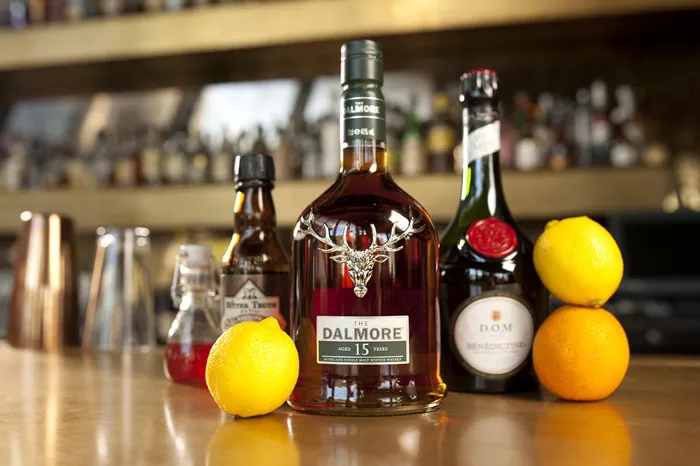Gin and vodka are two of the most popular alcoholic beverages in the world. They are frequently used in cocktails and enjoyed straight, but many people wonder if they are truly classified as spirits. This article delves into the definitions, characteristics, production methods, and cultural significance of gin and vodka. By the end, readers will have a comprehensive understanding of whether gin and vodka qualify as spirits.
Understanding Spirits
Definition of Spirits
Spirits, also known as distilled beverages or hard liquor, are alcoholic drinks that have been distilled to increase their alcohol content. This process typically involves fermenting a base ingredient, followed by distillation. The distillation process removes impurities and concentrates the alcohol. As a result, spirits usually have a higher alcohol by volume (ABV) than other types of alcoholic beverages, such as beer or wine.
Types of Spirits
There are several categories of spirits, including:
Whiskey: Made from fermented grain mash, whiskey has a rich flavor and is aged in wooden casks.
Rum: Derived from sugarcane or molasses, rum is often sweet and can be aged for varying periods.
Tequila: Made from the blue agave plant, tequila has a distinctive flavor and is a key ingredient in margaritas.
Brandy: Produced by distilling wine, brandy is often enjoyed as an after-dinner drink.
Both gin and vodka fit into the category of spirits due to their distillation process and high alcohol content.
The Distillation Process
Fermentation
Before distillation, both gin and vodka undergo fermentation. This process involves converting sugars into alcohol using yeast. The base ingredients for gin and vodka can vary significantly.
Distillation
After fermentation, the liquid is distilled. Distillation involves heating the fermented liquid to separate alcohol from water and other components. The alcohol vapor is collected and cooled, turning it back into liquid form. This concentrated alcohol forms the basis of spirits.
Proofing
Once distilled, the spirit is often diluted with water to reach a desired alcohol content. This step is known as proofing. The final product is then bottled and ready for consumption.
See Also: Spirits vs. Vodka: Which Is Stronger?
What is Vodka?
Definition of Vodka
Vodka is a clear, neutral spirit known for its purity and smoothness. It is typically made from grains, potatoes, or even fruits. Vodka is often characterized by its lack of flavor, making it a versatile base for cocktails.
Production of Vodka
The production of vodka generally follows these steps:
Ingredients: Common ingredients include wheat, rye, corn, potatoes, and even grapes.
Fermentation: The chosen ingredient is fermented to produce alcohol.
Distillation: Vodka is distilled multiple times to achieve a high level of purity, often reaching 95% alcohol by volume.
Filtration: After distillation, vodka is filtered to remove impurities, resulting in a clean taste.
Proofing: Finally, it is diluted with water to reach the desired ABV, usually around 40%.
Characteristics of Vodka
Vodka is known for its:
Neutral Flavor: This quality allows it to mix well with various ingredients in cocktails.
High Purity: The distillation and filtration processes ensure that vodka is free from impurities.
Versatility: Vodka can be enjoyed straight, in cocktails, or even as a base for infused spirits.
What is Gin?
Definition of Gin
Gin is a spirit that derives its primary flavor from juniper berries. While it shares some similarities with vodka, gin is distinct due to its botanical ingredients and flavor profile.
Production of Gin
The production of gin generally involves:
Base Spirit: Gin is usually made from grain, similar to vodka.
Distillation with Botanicals: During the distillation process, botanicals (herbs, spices, and fruits) are added, with juniper being the primary ingredient.
Flavoring: The specific combination of botanicals varies by brand, leading to a wide range of flavors.
Proofing: Like vodka, gin is diluted to achieve the desired ABV, typically around 40%.
Characteristics of Gin
Gin is known for its:
Distinct Flavor: The infusion of botanicals, especially juniper, gives gin a complex taste.
Variety: Different types of gin exist, such as London Dry Gin, Old Tom Gin, and Genever, each with unique characteristics.
Cocktail Popularity: Gin is a key ingredient in many classic cocktails, including the Martini and Negroni.
Comparing Gin and Vodka
Flavor Profile
One of the main differences between gin and vodka is their flavor. Vodka is neutral, while gin is rich with botanical flavors. This difference affects how each spirit is used in cocktails.
Production Methods
Both spirits undergo fermentation and distillation, but gin’s inclusion of botanicals during distillation sets it apart from vodka. The production methods lead to different sensory experiences when consuming each spirit.
Alcohol Content
Both gin and vodka typically have similar alcohol content, usually around 40% ABV.
This level of alcohol makes them potent spirits, often enjoyed in moderation.
Cultural Significance
Vodka in Culture
Vodka has a strong cultural association, particularly in Eastern Europe and Russia. It is often consumed during celebrations and rituals. In Russia, vodka is a symbol of hospitality, and toasting with vodka is a common practice.
Gin in Culture
Gin also has a rich history and cultural significance, especially in the United Kingdom. The “Gin Craze” of the 18th century saw a surge in gin consumption, leading to social changes. Today, gin is celebrated for its artisanal production methods and craft cocktails.
Conclusion
In conclusion, both gin and vodka are indeed spirits. They undergo fermentation and distillation, resulting in high alcohol content. While they share some similarities, their distinct flavors, production methods, and cultural significance set them apart. Understanding these nuances enriches the experience of enjoying these popular beverages, whether mixed in a cocktail or sipped neat.
So, the next time you raise a glass of gin or vodka, you can appreciate the craftsmanship that goes into each spirit.
You Might Be Interested In:


